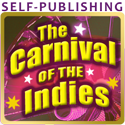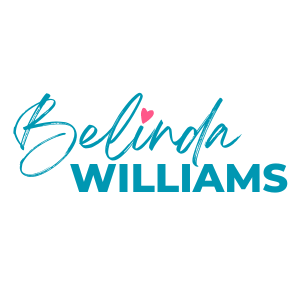Shorter is sweeter in the digital world


Over the last twelve months or so, eBooks have been getting shorter. It could in part be attributed to the ‘series’ mentality that has come about since the worldwide success of Twilight and Fifty Shades of Grey. These weren’t short books, mind you (at times I wondered if they’d ever end, but that’s another post!)
In the self-publishing world, you can now regularly see the first book in a series priced for free or a best-selling eBook author selling a series of novellas. Even traditionally published authors are hopping on the bandwagon. One of my favourite historical mystery/romance authors, Deanna Raybourn, released a prequel to her major release in May this year. How much did she charge for the eBook version of the prequel? Nothing! That certainly says something when the publishers are getting on board too. Even they recognise the industry is changing.
The long and short of eBook length: what does the industry say?
Both of my novels to date have been 100k+, so the marketer in me decided to find out if I was missing the mark. Should I be spending less time on each book? Should I be releasing eBooks more often? Here’s what I’ve discovered:
- On average, epic tales perform better. I was surprised when Smashword’s founder, Mark Coker, revealed that on average, as word count decreases, so do sales. In fact this positively baffled me! He claims that 121,000 is the average successful eBook length. In the traditional publishing world, it’s a length that publishers would avoid due to increased printing costs. In the eBook world, the sky’s the limit (or the readers attention span is anyway).
- Get your genre right, then research it. I was less surprised to discover that in the romance genre, eBooks are substantially shorter. Romance readers prefer books between 65,000 and 80,000 words in length, according to Coker. Nine of the top ten romance bestsellers at Smashwords were less than 80,000 words. In terms of genre, the most successful genre of ebooks are currently thriller, mystery and romance.
- Author success = reader loyalty. And how do you create reader loyalty? Write and publish a lot of books. The first wave self-published success stories such as Amanda Hocking, Stephen Leather and John Locke are great examples of this. If you’ve only written and published one book it’s hard for readers to become loyal, because quite simply, what do they read next?
- Get serial. This is why many authors write series. They establish strong, interesting characters and then drip feed it to the readers every six to twelve months. This breeds loyalty because once a reader becomes attached to the characters, they’re always interested in hearing about the latest release. In January 2012, John Locke earned around $100,000 for the month from his Amazon sales. While you get over that figure, I’ll put some perspective on it for you – this was from the sales of 15 books. Yep, I’ve got a long way to go before I get to fifteen, how about you?
- We have short attention spans. Blame it on the recent change to society and communication thanks to social media, but the fact is, the way we consume information is changing. We are serial television station hoppers – and this usually occurs WHILE we are simultaneously on Twitter, Facebook, YouTube – you get the idea. Short fiction satisfies, according to some. It allows us to get a quick hit of fiction amidst the bustle of our day-to-day life. It fits in with us, whether you’re on the bus or train, or sitting in front of the television (I won’t say watching television, because I’m not actually sure that’s what we do anymore…)
There is no substitute for good quality writing
I think it goes without saying that anything you write needs to be good quality, well-edited and professional. There’s enough novellas out there that lack structural and grammatical editing and they’re not going to be earning the dollars in the long term that a professionally minded self-published or traditionally published author could.
It’s nice to know that I shouldn’t throw out my 2 novels of 100,000+ each. But the research has definitely got me considering the length of my future works.
How about you? Have you had more success with shorter fiction than longer works? Or do you think a good story is a good story, no matter how long it is?
Links:


Leave a comment